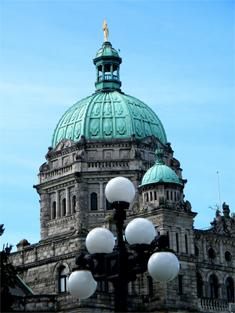The BC government today unveiled a $40.6 billion budget which critics say fails to rectify last year’s cuts to arts and culture organizations.
“What I’ve been able to see in the budget so far is it looks like a 50 percent cut to the arts, gaming and [BC] Arts Council,” says Vancouver-West End MLA Spencer Herbert, who is gay.
“So it’s not 90 percent the Liberals threatened, but a 50 percent cut is devastating. It will lead to thousands of job losses, artists leaving our communities and a much less vibrant cultural scene with less expression for queer stories,” he says.
“I know Out on Screen has been watching this closely. It will impact them and any other queer groups looking to get our stories out there,” Herbert adds.
Queer arts organizations, including Out on Screen, which produces Vancouver’s annual queer film festival, were hoping that the government would restore funding to 2007/2008 levels.
“What is frustrating with this government is that it feels like they’re playing a colossal shell game,” says Out on Screen’s executive director, Drew Dennis.
“Many arts groups such as Out on Screen lost gaming funding in 2009. Late in the game, they pulled the carpets from under us, and now what’s happened is we’ve been approved for our BC arts council grants for 2010 but the grant is being funnelled through the gaming program,” Dennis explains.
“It raises questions as to what the intent is from the government and how existing artistic partners will be part of the government moving forward with arts and culture investment.”
In presenting his budget to the BC legislature Mar 2, finance minister Colin Hansen said his government plans to capitalize on the momentum of hosting the Olympics. He introduced a 2010 Sports and Arts Legacy, which provides $60 million for arts and sport activities over the next three years. Half of this funding will be allocated to youth sports and improved athlete and coach development. The remainder will be spent on the arts.
Dennis is concerned about how the allocation of these funds will affect queer arts organizations. The program proposes to develop new art and cultural ideas to generate economic benefits and nurture ideas that could become “commercialized within a specified timeframe.
“When you see words like ‘commercializing art,’ that raises a red flag,” says Dennis. “It raises concerns about artistic integrity. Hopefully this doesn’t mean the government only places value on certain types of art other than what our groundbreaking edgy artists across the province produce.
“We are a more marginalized community, and I wonder if this rule would eliminate or place a lesser value on the incredible talent coming out of Vancouver and the rest of the province?”
The Alliance for Arts and Culture, which works closely with Out on Screen, also expressed disappointment over today’s budget.
“Premier Gordon Campbell and Finance Minister Colin Hansen seem to have largely disregarded the recommendations of their own Standing Committee on Finance and Government Services and continue to ignore the importance of the creative sector,” the Alliance’s executive director, Amir Ali Alibhai, said in a press release.
The government lists overall spending for arts and culture for 2010/2011 as $46.1 million compared to $47.7 million in 2008/2009, but the Alliance points out that the 2010/2011 figure includes $12.1 million in funding for the Royal BC Museum, which was previously funded from other sources.
Alibhai believes that the Olympics underscored the importance of the arts for society.
“The stunning spectacle of people convening in the city streets night after night — it was the musicians, artists and street performers who made that experience work,” he says. “Art was the glue that held the Olympic experience in place for locals and visitors alike. From the major stages of the theatres and stadiums to the clubs and pubs and street corners, entertainers stepped up to the plate to ensure that the athletes and their fans had the experience of a lifetime.”
Herbert agrees.
“The Olympics should have provided a great argument for why we need to invest in our culture. The Cultural Olympiad was huge. We had performances from British Columbia and all over the world. Once the world’s gone, the government is taking these same groups and cutting them by 50 percent. It’s hypocrisy of the first order. They don’t understand the economic benefits of investing in our creative sector.”

 Why you can trust Xtra
Why you can trust Xtra


